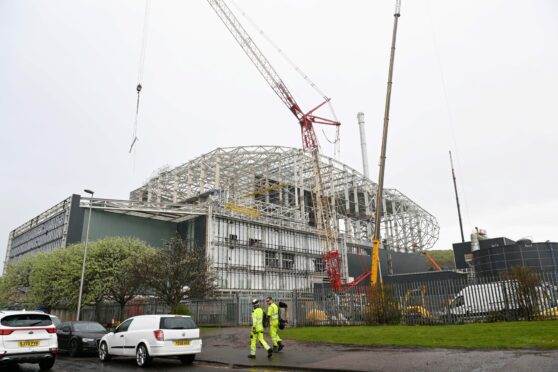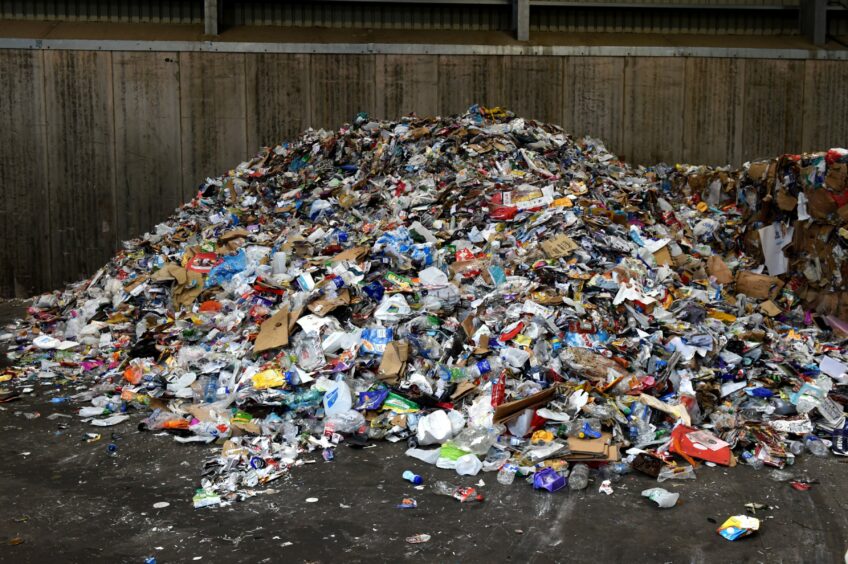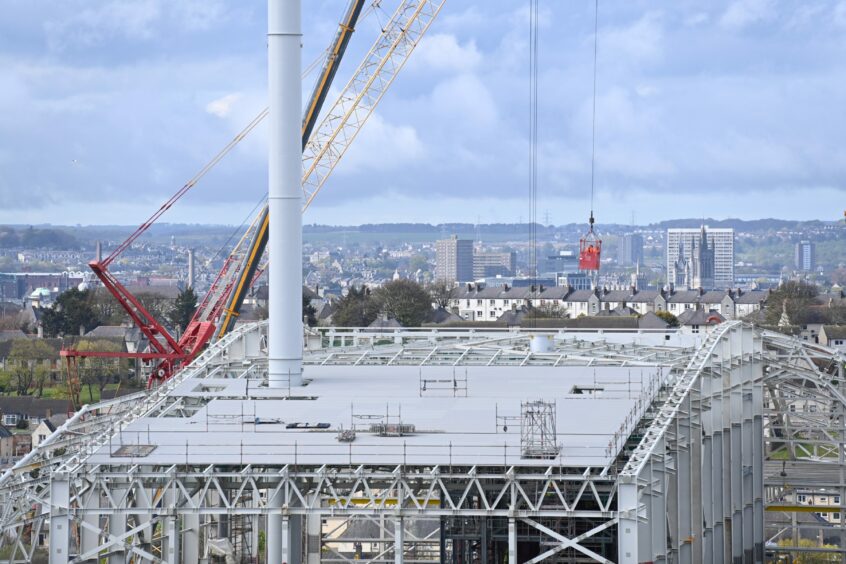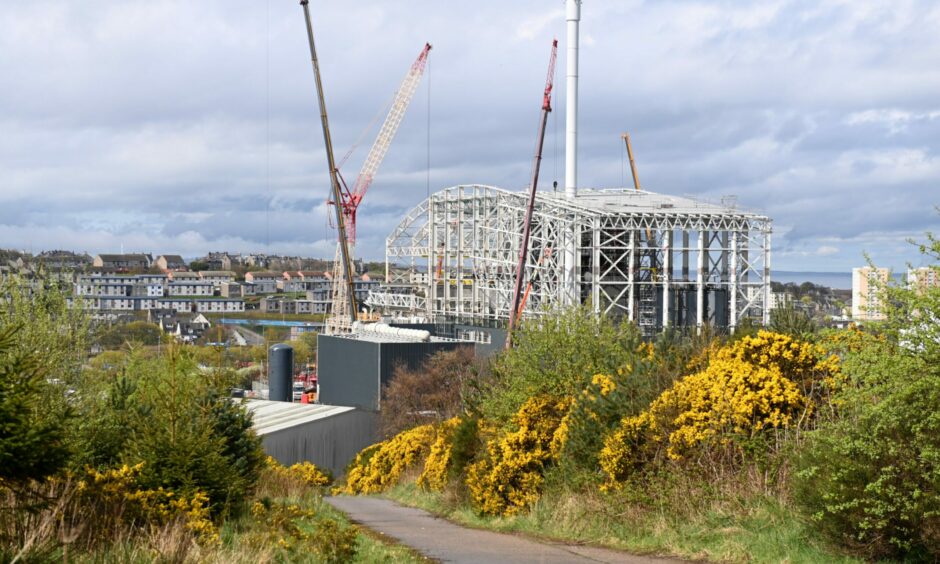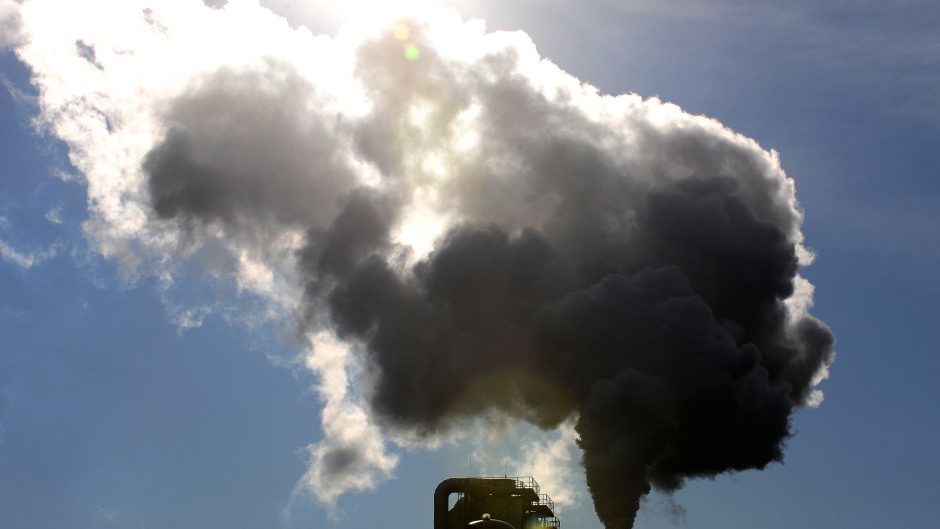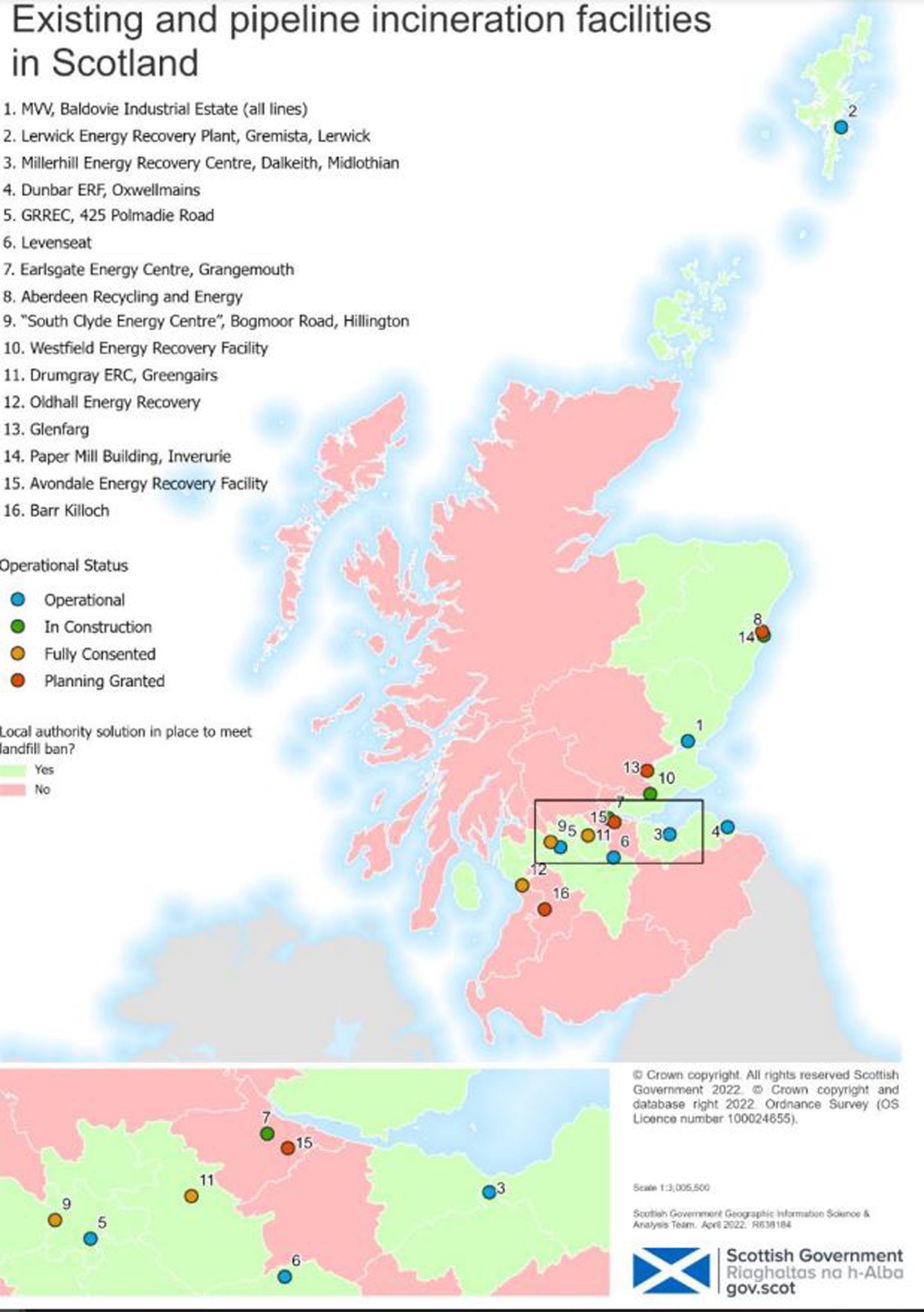Restrictions on building new Scottish incinerators should be introduced “effective immediately”, the Scottish Government has been urged.
An independent review has been carried out, authored by waste sector expert Colin Church, on the role of incineration in how Scotland deals with its waste.
Mr Church’s review is titled “Stop, Sort, Burn, Bury?”, and contains 12 key policy recommendations for the government, local authorities, and the waste industry.
They include a call for the Scottish Government to ensure that no further planning permission is granted to new incineration infrastructure, unless “balanced” by closures of existing facilities.
The report also calls for an “indicative cap that declines over time” for the amount of non-recyclable waste being burned as the country “transitions towards a fully circular economy”.
But what about Aberdeen’s currently under-construction incinerator in East Tullos?
The £150 million Ness Energy Project being built in Aberdeen will take all rubbish that can’t be recycled from the three council areas of Aberdeen City, Aberdeenshire and Moray.
Designed to help the three local authorities reduce the volume of waste from their regions ending up in landfill, once completed it is planned to burn 150,000 tonnes of unrecyclable material every year, and produce heat and electricity in the process.
Those behind the project have gone to great lengths to reduce the use of the word “incinerator” to describe the scheme, even addressing the question of “Why don’t you call it an incinerator?” in an FAQ on the official website.
The project was recently granted permission to operate by the Scottish Environment Protection Agency, who said “no potential for significant pollution has been identified”.
A spokeswoman for Aberdeen City, Aberdeenshire and Moray councils said the three authorities “note the publication of the report”, and they will “take time to carefully consider the findings”.
She added: “The report clearly states that energy from waste is an essential element of sustainable non-recyclable waste management and that Public Health Scotland has re-confirmed its previous view that health and social impacts were likely to be small.”
Modern plants not ‘polluting monstrosities of the past’
In the foreword for his report, Mr Church highlighted the concerns that have been raised “about the impacts of incineration on human health and the environment”.
He wrote: “Modern plants are far from the polluting monstrosities of the past, now being required to meet stringent emissions standards to protect human health and the environment from airborne harm.
“But burning waste also produces carbon dioxide, a greenhouse gas, so allowing it to be freely emitted in the long term is incompatible with Scotland’s desire to reach net zero carbon emissions.”
Should there be a cap on new incineration facilities being built?
Mr Church said the Scottish Government’s current plans for building new waste incineration facilities are “likely to be more than needed, so a lot of it should not be built.”
The waste industry expert added: “There is also more that must be done to reduce the climate impacts of waste incineration, and I look forward to revisiting my provisional recommendations in this area in due course”.
Scottish Government minister says incineration’s role is ‘inevitably limited’
The government says it will set out its initial response to the review in June.
Lorna Slater, the circular economy minister for the Scottish Government, thanked Mr Church for his review, and said he has proposed some “valuable recommendations”.
She said: “We want to create a circular economy, where materials stay in use for as long as possible, and nothing is wasted.
“It is clear from the review that although incineration has a role to play in managing Scotland’s unavoidable, unrecyclable residual waste in a safe way, that role is inevitably limited.
“As we transition to a circular economy, Scotland will need significantly less incineration capacity than is currently projected, and it is viral that we do not have more capacity than we need.”
You may also like to read:
- Sepa says Aberdeen incinerator has “no potential for significant pollution”
- Aberdeen’s energy from waste plant on schedule to start burning waste in 2022
- The full “Stop, Sort, Burn, Bury” report
